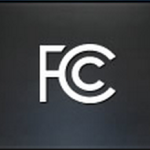 The formal portion of the Federal Communications Commission’s Open Internet proceeding has concluded. Tens of thousands of individuals have filed comments, as have all of the major Internet Service Providers. We sparked some controversy last month by calling T-Mobile’s music “Freedom” plan an Internet fast lane. Paul Riismandel characterized it as such because the plan prioritizes select streaming services (like Pandora) by exempting their use from a T-mobile subscriber’s accruing data consumption rate.
The formal portion of the Federal Communications Commission’s Open Internet proceeding has concluded. Tens of thousands of individuals have filed comments, as have all of the major Internet Service Providers. We sparked some controversy last month by calling T-Mobile’s music “Freedom” plan an Internet fast lane. Paul Riismandel characterized it as such because the plan prioritizes select streaming services (like Pandora) by exempting their use from a T-mobile subscriber’s accruing data consumption rate.
Now T-Mobile has filed its Open Internet comments with the FCC, disclosing what ‘freedom’ means to the telco for itself. “The application of new open Internet regulations to mobile wireless broadband providers is unnecessary and would be inappropriate,” the statement begins. T-Mobile says that wireless ISPs should be exempted from any new non-discrimination requirement that the FCC might impose:
“Mobile providers already have strong incentives to behave reasonably, and any undesirable conduct is effectively constrained by competition and existing legal mechanisms. In contrast, a broad non-discrimination rule would hinder the development of new pro-consumer innovations to the detriment of consumers.”
Much of T-Mobile’s filing emphasizes the allegedly competitive nature of the wireless industry, without mentioning that the two biggest wireless ISPs (Verizon and AT&T) control almost 58 percent of the market. 16.1 percent goes to Sprint, while 12.2 percent goes to T-Mobile. Most importantly, Sprint and T-Mobile are trying to merge. This will mean that, if that transaction goes through, around 86 of wireless broadband in the United States will be run by three telecommunications firms.
The statement also doesn’t mention that the FCC is now investigating T-Mobile for complaints of violations of the agency’s no-cramming rule. The announcement notes that “numerous T-Mobile subscribers have filed complaints with the FCC and the FTC [Federal Trade Commission] alleging that unauthorized charges for unwanted third-party services were added to their T-Mobile wireless telephone bills.” These included charges for “ringtones, wallpapers, and text message subscriptions to services providing horoscopes, flirting tips, and celebrity gossip.”
Apparently neither the current state of competitiveness nor “existing legal mechanisms” constrained T-Mobile’s alleged behavior in this regard. Why then would it inhibit the impetus for discrimination against third party services not owned or in partnership with T-Mobile? Nonetheless the telco insists that no expansion of the FCC’s Open Internet provisions should occur.
Furthermore:
Do not expand the existing transparency rule, T-Mobile says. “Expanding the rule would require providers to make disclosures that could be too complex and technical to be useful, or too vague to be meaningful.”
Do not apply an updated “no-blocking” rule to mobile providers. “The provision of a constant minimal level of service is impossible in the mobile context, and attempting to enforce such a standard would arbitrarily punish providers and their customers.”
To sum up: limit disclosure requirements, don’t require wireless ISPs to provide a minimal standard of service, and most importantly, trust us. To be fair, all the big ISPs have filed comments along these lines with the FCC. But they all boil down to the same message—they want “freedom,” the freedom to prioritize, to set up road bumps, and to manage their networks without meaningful scrutiny.
This has crucial implications for radio services that rely on (or would like to rely on) high speed Internet to reach the public. The reclassification of broadband as a telecommunications service will give the Commission the authority it needs to address those concerns.


